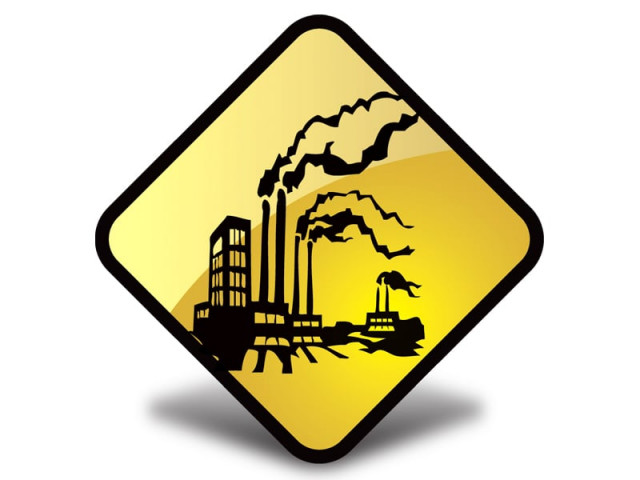Despite Supreme Court’s instructions, industries continue to pollute
Substandard waste management system getting worse day by day: experts.

While industries in Karachi claim that they are acting in accordance with all the instructions of the Supreme Court on solid waste management; active environment experts believed that the ground reality is very different. The nexus of municipal authorities and industries seems to have acquired a lot of muscle in the absence of proper checks and balances in the largest industrial city of the country.
National Forum for Environment and Health President Naeem Qureshi says that solid waste management in Karachi is very poor, despite the keen interest of the apex court on the issue.
“As far as I think, four national and international companies have completed their feasibility reports on solid waste management in the city in the last 15 years,” said Qureshi, “but, the net result is zero; which shows that there are some vested interests of the government that do not want to see any such system working effectively in the city.”
“These same stakes in the government turned down all offers made by foreign companies to treat Karachi’s solid waste,” he said. Karachi produces over 10,000 tons of solid waste every day, and, in the absence of a proper waste management system, things are getting worse every year, added Qureshi.
After instructions from the court, industries increased their efforts to dispose of solid waste properly, Sindh Minister for Environment Sheikh Muhammad Afzal said, when asked about progress on the court’s directives.
The industrial zones have built half a dozen collection points to dump solid waste, that is picked up by municipal authorities and taken to land-fill sites, he said.
“I have taken up the matter and I will check what improvement industries have made recently,” said Afzal.
In the absence of treatment plants and drainage systems, thousands of industries dump toxic industrial waste in storm-water drains, which flow directly into the Arabian Sea. Environment protection groups had often highlighted the indifference of industries over the discharge of toxic materials, but the government seems insensitive to environmental degradation.
Ehteshamuddin, chairman of the Korangi Association of Trade and Industry, one of the biggest industrial zones of Karachi, said that organisations in his industrial zone were taking the matter seriously and doing what was required.
There have been incidents in recent years in which children were killed due to exposure to toxic waste discharged by industries in their own surroundings.
Masood Naqi, head of the Korangi Industrial Trading Estate, said that the Supreme Court had not actually taken any notice, but merely issued instructions on solid waste management to the zones.
“Not only Korangi, but all industrial zones of the city have improved their solid waste management systems by allocating landfills for municipal authorities inside the industrial zones,” he added.
The Korangi industrial zone is home to one of the largest clusters of leather industries in Pakistan.
Pakistan Tanners Association’s former chairman Gulzar Feroz claims that the leather industry in Korangi treats its waste, especially its wastewater, before dumping it into the sea.
“Our combined treatment plant had been operational for the last four years,” he said, adding that the notice that the Supreme Court took a few years ago was regarding ineffective management of solid waste in Karachi, and had nothing to do with the combine treatment plants in the city.
Published in The Express Tribune, October 8th, 2012.



















COMMENTS
Comments are moderated and generally will be posted if they are on-topic and not abusive.
For more information, please see our Comments FAQ